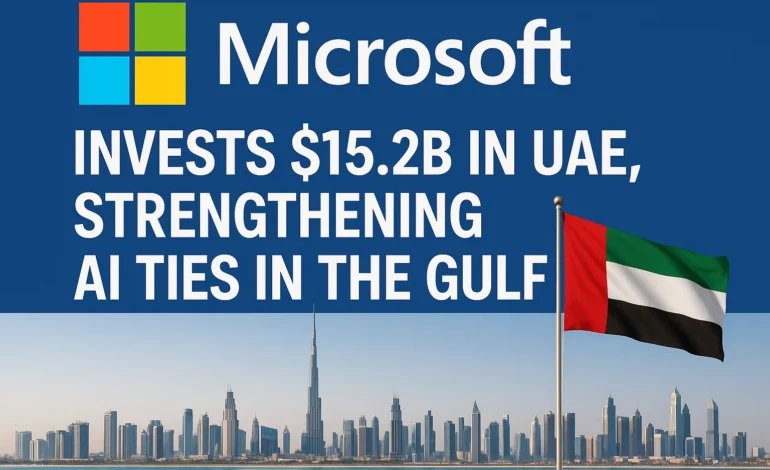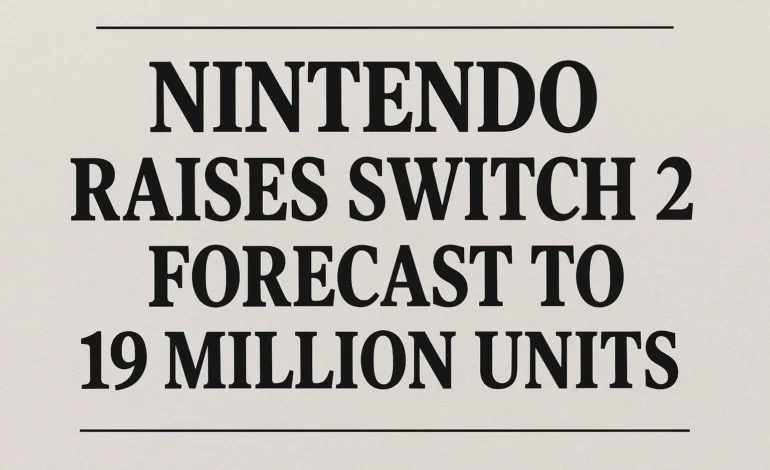Microsoft Invests $15.2B in UAE, Strengthening AI Ties in the Gulf

Table of Contents
Microsoft is making a bold move in the Gulf. The company will invest $15.2 billion in the UAE to build powerful AI and cloud capacity. This plan runs through 2029 and deepens a growing partnership across technology, talent, and security.
Why Microsoft Is Betting Big on UAE and AI
We see clear reasons behind this decision. The UAE wants to lead in AI and digital services. Microsoft wants global reach and trusted partners. Both goals align in this deal. The plan includes data centers, skills training, and strong safety rules for advanced chips.
The Investment at a Glance
- $15.2B over several years to 2029.
- New AI infrastructure and larger cloud regions.
- U.S.-approved shipments of advanced Nvidia chips to power AI.
- Ongoing work with Abu Dhabi’s G42 after a prior $1.5B stake.
Microsoft’s AI Hardware Edge in the Gulf
Microsoft gained licenses from the U.S. to ship powerful Nvidia chips to the UAE. These chips will fuel training and inference for modern AI models. Reporting notes tens of thousands of units, including next-gen GB300 parts, headed to approved UAE sites under strict controls. This step is unusual and shows deep trust and oversight.
What These Chips Mean for AI Performance
More chips mean faster AI training, lower wait times, and support for bigger workloads. That helps local firms scale AI projects in health, energy, finance, and government. The goal is simple: run advanced AI safely and at speed inside the region.
A Strategic Link: Microsoft and G42
The Microsoft–G42 link started with a $1.5B investment. It grew into centers for AI research and responsible use. The two groups plan to spread AI tools across the Middle East and beyond. This new money builds on that base with more compute, talent, and governance.
Why This Partnership Matters
G42 brings local reach and sector depth. Microsoft brings global cloud, security, and AI models. Together, they can help the UAE speed up digital services and industry upgrades. That includes safer AI use and clear standards that support growth.
AI, Diplomacy, and the Gulf
This deal is not only about machines. It is also about policy. The license to send advanced chips to the UAE shows an evolving view of AI trade. It places Microsoft at the center of a careful balance: help allies adopt AI, while guarding national security. Analysts describe the UAE as a live test of that approach.
Security Conditions and Compliance
Microsoft says it met tough cyber and national security conditions to enable shipments. The company notes prior GPU capacity already operating in the country. Extra checks aim to prevent diversion and protect sensitive models. These controls are part of the approval process. For more insights, check out OpenAI and Amazon Sign $38 Billion Cloud Computing Agreement.
What Microsoft’s $15.2B Means for Business Users
We expect three clear benefits for customers in the UAE and the wider Gulf:
- Lower latency for AI: Local data centers reduce delay and cut costs for real-time AI tasks.
- Access to advanced models: Partners can use OpenAI, Anthropic, Microsoft, and open-source models on Azure.
- Scalable compliance: Regional hosting supports local rules and data needs.
Sectors Likely to Gain First
- Government services can use chat assistants and workflow tools.
- Energy firms can apply AI to demand forecasts and safety.
- Finance can improve risk checks and fraud detection.
- Health can deploy imaging and triage aids with guardrails.
These uses already appear in UAE pilots and showcases tied to Microsoft programs.
Talent, Training, and Local Jobs
The plan includes major skills programs. Microsoft has pledged large-scale AI training for residents by 2027. That builds a pipeline for developers, analysts, and operators. New roles will form around model ops, prompt safety, data quality, and compliance. This people focus is key to real adoption.
Why Skills Matter as Much as Servers
Without trained teams, AI stalls. With training, businesses can move from trials to live apps. That shift raises productivity and sparks local startups. The UAE’s own digital plans aim for broad adoption in public services by 2027, which aligns with this push.
How This Shapes the Regional AI Map
The Gulf is racing to lead in AI. Saudi Arabia invests in compute and research. Qatar and Oman build cloud zones. With Microsoft’s plan, the UAE strengthens its hub position. Strong rules and trusted platforms can attract global partners and high-value projects.
Ripple Effects for the Wider Economy
More capacity means more AI pilots can become products. That drives demand for data services, green energy, and networking. It also pushes vendors to build regional tools for Arabic language and local use cases. These effects compound as firms scale.
What to Watch Next
- Rollout pace: When do new clusters go live, and where.
- Chip deliveries: Timing of Nvidia units under the license.
- New partners: Local telcos and integrators joining as anchor tenants.
- Policy updates: Any new export guidance or AI safety rules.
Market Signals and Media Coverage
Coverage from global outlets highlights the scale and timing. Stories confirm the seven-year window and chip approvals under U.S. rules. Financial press links the move to broader AI demand and related data-center deals. These signals suggest strong momentum behind Microsoft in the region.
Social Chatter: X and Reddit
We looked for fresh posts on X and Reddit about this news. At the time of writing, we did not find verified threads to cite. Major coverage and summaries from trusted outlets are active and shareable, and they are shaping early discussion.
Practical Steps for Teams Building on Microsoft AI in the UAE
- Assess workloads: Identify tasks that gain from local AI compute.
- Plan data flows: Keep sensitive data inside approved regions.
- Adopt governance: Use built-in safety and logging on Azure AI.
- Invest in skills: Train teams on prompt design and model risks.
- Pilot, then scale: Start small, measure value, then expand.
These steps help convert infrastructure into real outcomes.
Final Thoughts: Microsoft, AI, and a New Gulf Chapter
Microsoft is tying long-term growth to the UAE’s AI vision. The $15.2B plan blends compute, policy, and people. It strengthens trust, speeds adoption, and builds capacity that serves the Gulf and beyond. As new clusters come online, we expect faster apps, better services, and wider access to secure AI. For customers and partners, this is a chance to build bold products with Microsoft and AI at the core.




